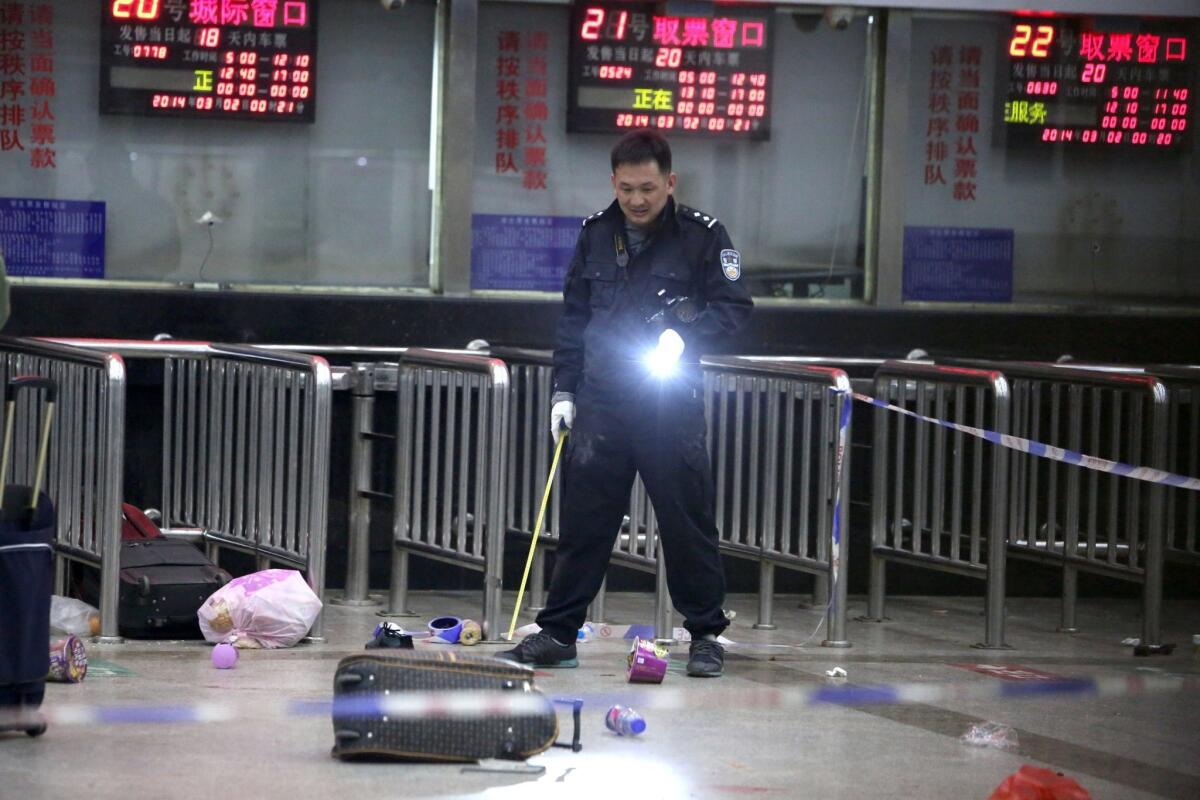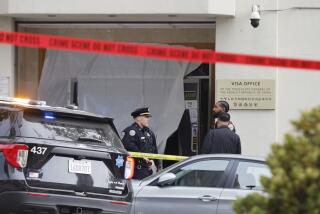Slayings of 3 fishermen raise new worry about militants in China

The three men’s bodies were found bloodied on the banks of a lake where they had been fishing on a Sunday last month, one of them slashed in the neck so deeply he was almost decapitated.
The April 27 triple slaying of three Chinese men in an ethnically Uighur section of the Xinjiang region has raised once again the specter of a new wave of terrorism roiling China.
The killings took place in a rural area about 100 miles southwest of Kashgar, one of the westernmost cities in China. President Xi Jinping was visiting that day to promote the fight against separatists and delivered a speech calling Kashgar the “front line in anti-terrorism and maintaining social stability,’’ according to the state media. Xi’s visit was also punctuated by a bombing and knife attack at a train station in Urumqi, the regional capital.
The slayings were first reported Thursday by Radio Free Asia.
Relatives of the slain men have accused Chinese authorities of covering up the details in order to downplay the extent of ethnic violence in the region.
“Anyone with common sense can tell this is a terrorist attack. ... What are they trying to hide?’’ they said in a letter signed by the widows of the three men.
The letter was posted on an Internet site May 3, but removed shortly afterward, presumably on orders of Chinese authorities. Comments about the letter on an Kashgar online forum were also removed, and the accounts of the people who commented were blocked.
The three men were employees of state-owned companies, one with a bank and two with an automobile repair firm. They reportedly liked to fish on weekends and had gone to a pond near their homes in Yecheng County. Their mutilated bodies were discovered by a fourth man who had gone with them, but was fishing alone at another section of the pond.
“Their car was there. Their money was there. It was definitely not a robbery,” said Zhou Jianlai, manager of the Zepu County Tongda Transportation Co., where some of the men worked. “The police have not solved the case yet. They are taking it as a regular criminal case for now.”
Experts in Xinjiang say there has been an upsurge in ethnic violence, much of which has gone unreported.
“The tempo and tone of the attacks has increased very significantly in the last two years,” said Rohan Gunaratna, a Singapore-based terrorism expert. “These are really low-tech attacks using knives, sticks, stones and gasoline. The Chinese government likes to classify them as criminal incidents but they are not regular crimes.”
Figures leaked last year by public security officials to state media showed that there had been 200 attacks in 2012 and that the numbers were increasing.
“There is no clear definition of what is a terror attack. You have to know what the motives were of the killers,’’ said another expert, Yang Shu of the Central Asia Studies Institute at Lanzhou University. In the case of last month’s triple slaying, Yang said, the extreme brutality made it likely that it was not a classic terror attack but a “racially profiled attack targeting Han Chinese.’’
Bordering Pakistan, Xinjiang is one of China’s most ethnically fraught regions. The Uighurs, a Turkic-speaking people, often resent the influx of Han, the majority of Chinese, and restrictions on the practice of Islam.
Uighurs were blamed for one of China’s most deadly incidents in recent years, a March 1 rampage at a train station in Kunming that left 33 people dead.
Yang said his institute had tracked 169 deaths from publicly reported attacks in China since the beginning of 2013, with many other incidents unreported.
In the letter accusing authorities of a cover-up, family members of the slain men said there had been another killing that same day in Yecheng County: a 13-year-old girl stabbed while getting out of a taxi by a woman wearing a black veil.
Details of that incident could not be confirmed, and a family member contacted on Thursday declined to comment.
News assistant Tommy Yang and Times staff writer Julie Makinen of the Times’ Beijing bureau contributed to this report.
More to Read
Start your day right
Sign up for Essential California for news, features and recommendations from the L.A. Times and beyond in your inbox six days a week.
You may occasionally receive promotional content from the Los Angeles Times.






